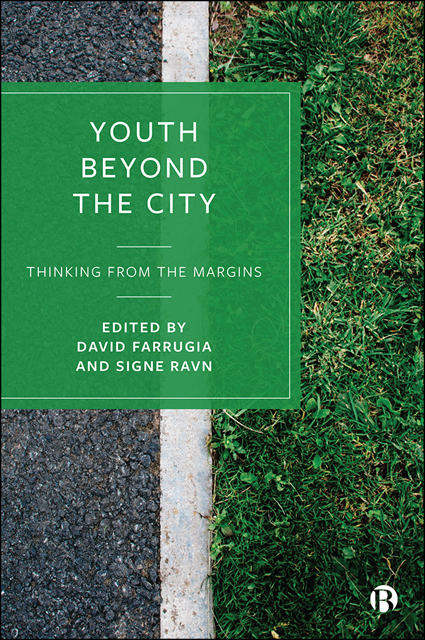Book contents
- Frontmatter
- Contents
- List of Figures and Tables
- Notes on Contributors
- Introduction: Thinking from the Margins
- Part I Inequalities: Education and Aspiration on the Margins
- Part II Materialities: Spatiality and Sensory Embodiment
- Part III Identities: Mobility, Rootedness and Belonging
- Part IV Temporalities: Historicizing Space and Place
- Index
11 - Backward Youth? Racist Trolling and Political (In)Correctness among Young People in Rural Sweden
Published online by Cambridge University Press: 13 October 2022
- Frontmatter
- Contents
- List of Figures and Tables
- Notes on Contributors
- Introduction: Thinking from the Margins
- Part I Inequalities: Education and Aspiration on the Margins
- Part II Materialities: Spatiality and Sensory Embodiment
- Part III Identities: Mobility, Rootedness and Belonging
- Part IV Temporalities: Historicizing Space and Place
- Index
Summary
Introduction
Ida and Dennis referred to themselves as ‘greaser trash’, an invective associated with people in the countryside who spend large portions of their time servicing and driving old, reconstructed cars. In accordance with stereotypical notions of this ‘unrefined’ rural subculture, Ida and Dennis were outspoken, humorous and provocative. Six months into my fieldwork in their small rural community in Sweden, the three of us sat down to conduct a formal interview. After I had informed Ida and Dennis that the microphone was turned on, Ida enthusiastically started to sing a song from the 1960s with inarguably racist and sexist lyrics. Ida laughed as our eyes met. “Alright”, I said and joined her laughter, “Should we talk a bit about your racism then?” “Yes, I think so”, Ida agreed, nodding her head. The next moment, Ida leaned over the table and whispered into the microphone, “Swastikas for life. Greaser trash, 666, KKK.”. I ignored the provocative references and was just about to start asking my questions when Dennis put the song on speaker. Ida sang along: “A negro came to Stockholm harbor one day, his dick so large that whores would faint.” Quite shocked by the explicit content, I burst into laughter and asked “What is this?” Although Ida and Dennis’ performance fitted neatly with deeply rooted conceptions of backwardness and moral degeneracy connected to their rural dwelling and subcultural expression (Eriksson, 2010), Ida's and Dennis’ racism seemed so explicit and over-the-top. The interview was in a sense a spectacle, so outrageous that I began to doubt its sincerity (cf Day, 2008). Ambivalently amused, I wondered; were these kids for real, or not?
Children and youth are often understood through a lens of futurity that is part of constructing the hope of a nation (Katz, 2008; Ryan, 2011). While young people at times cause public anxieties by pushing established boundaries and threatening the status quo, they may simultaneously be celebrated as symbols for societal development, be it capitalist expansion, climate change consciousness or liberal values.
- Type
- Chapter
- Information
- Youth beyond the CityThinking from the Margins, pp. 215 - 234Publisher: Bristol University PressPrint publication year: 2022

